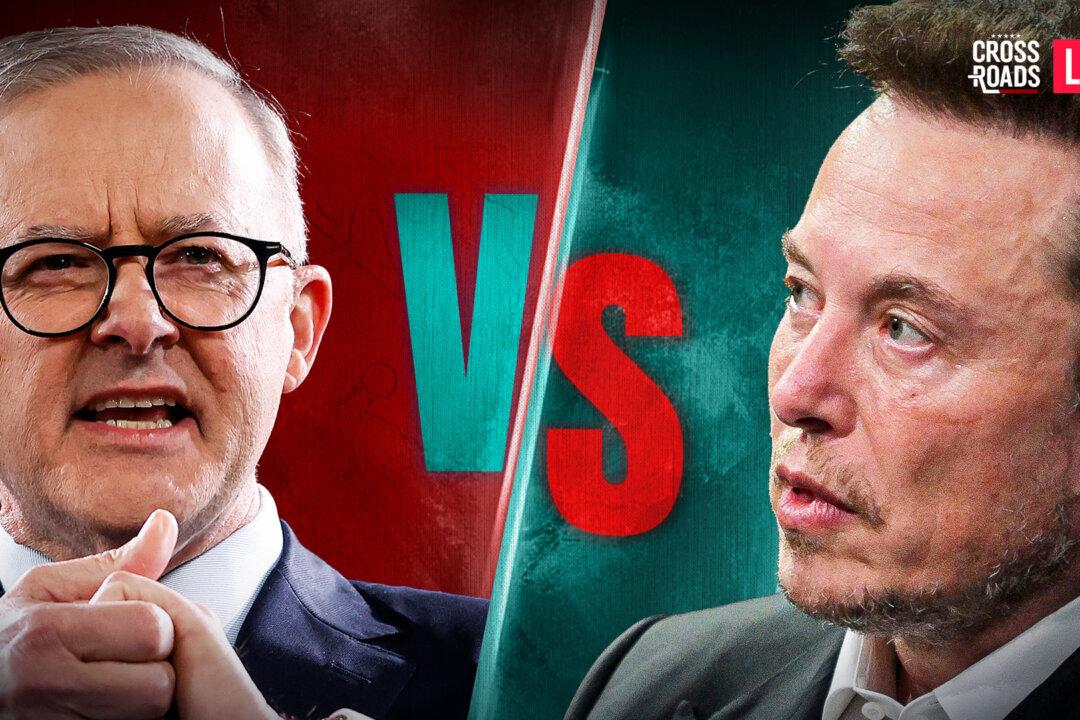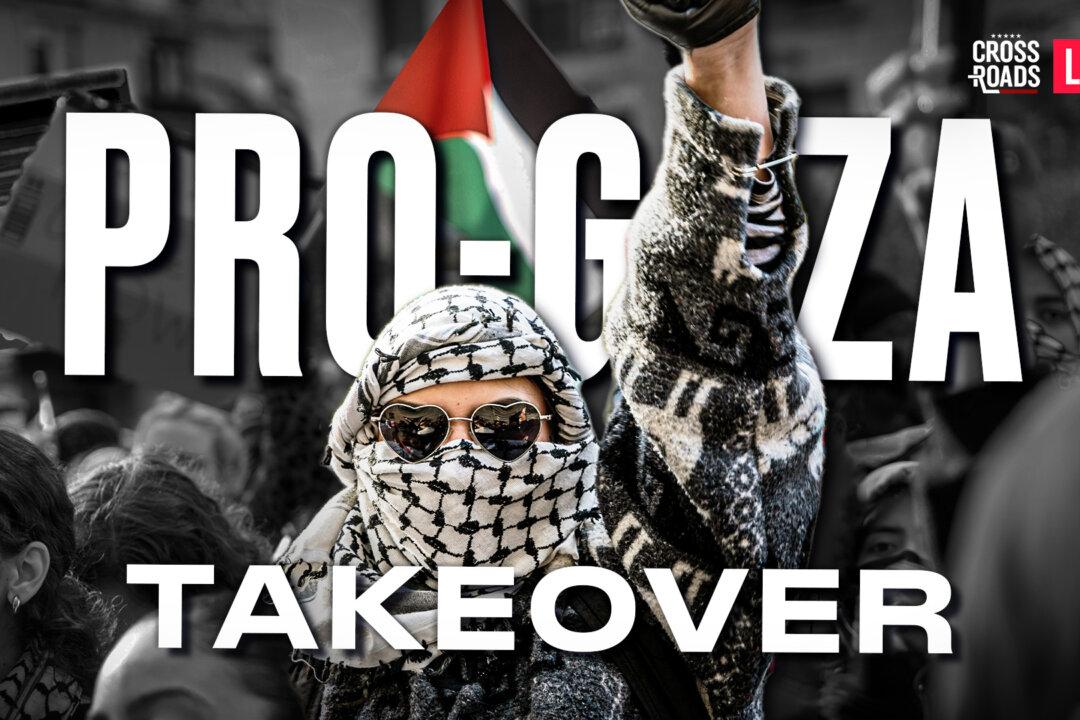The nature of al-Qaeda and its international terror efforts made a drastic change following the U.S. invasion of Afghanistan in 2001. With many of its leaders killed and its base of operations lost, it transformed from having a strong leadership structure, to an organization relying mostly on individual actors.
The May 1 killing of Osama bin Laden, the leader of al-Qaeda, was a two-pronged victory for the United States, both severing the head of al-Qaeda and providing a treasure trove of intelligence from bin Laden’s captured computer hard drives.
There is now debate as to whether the death of bin Laden means the United States should begin withdrawing from Afghanistan, given President Barack Obama’s Dec. 1, 2009, statement that the goal of the Afghan war is to “disrupt, dismantle, and defeat al-Qaeda in Afghanistan and Pakistan, and to prevent its capacity to threaten America and our allies in the future.”
With bin Laden now dead, there are arguments the goal to defeat al-Qaeda was accomplished, yet the transformations al-Qaeda underwent following the 2001 Afghan invasion lessened what could have been a decisive blow.
In 2001, bin Laden “had his hands in everything from A to Z,” including recruitment, funding, and strategy, but as U.S. efforts to dismantle al-Qaeda continued, “the organization became much more fractured, much more horizontal, much more networked,” said Max Abrahms, postdoctoral fellow, Dickey Center for International Understanding, Dartmouth College, in a phone interview.
From a practical standpoint, the organization moved from highly organized, planned operations such as 9/11, to having a heavy reliance on individual self-starters such as Malik Nadal Hasan’s alleged killing of 13 people at Fort Hood.
“These are people who blend in better with everyday society, which makes catching them a lot harder,” said Abrahms. “Although the upside is that there are fewer people working together, so we’re less likely to have a mass-casualty terrorist attack, a huge one.”
Even with al-Qaeda weakened, however, the war in Afghanistan has transformed into a very different fight. Of the opposing forces in Afghanistan, al-Qaeda is among the “least materially significant to the fighting,” states the Congressional Research Service (CRS) report, noting their numbers in the country are only estimated around 100.
Rather, the Taliban, centered around Mullah Umar, who led the regime from 1996 to 2001, is now the main opposing force. Although Umar and his core group of advisers are believed to have safe haven in Pakistan, the Taliban had already begun distancing itself from al-Qaeda, as it blames its lose of power in Afghanistan on the organization, according to the CRS report.
“It’s important not to conflate al-Qaeda and the Taliban,” Abrahms said. “Al-Qaeda is a transnational organization that is very networked, and they attack civilians, mainly. The Taliban is an insurgent group with a base of local support. Their main goal is to end the occupation of Afghanistan.”
Read More...Civil War
“In a way, the Taliban [fight] is more of a civil war,” Abrahms said.
A hope among U.S. military officials is that the death of bin Laden could begin talks with Taliban leaders. The nature of the operation that killed bin Laden, which found him even though he had safe haven in Pakistan, combined with growing pressure against the Taliban following the 2009 to 2011 troop surge “could prompt key Taliban leaders to engage in serious settlement negotiations,” states the CRS.
Still, the key part of the whole picture was that the United States obtained a massive trove of intelligence from bin Laden’s hard drives. Although the full contents will likely never be completely revealed, it is believed to contain locations of safe houses and key operational data.
According to Drew Berquist, former U.S. intelligence officer, and author of “The Maverick Experiment,” a troop withdrawal and a shift of focus to the use of special operations and intelligence agents, could be one of the best moves.
“When we pull out it’s actually going to be a good thing because it lets us get back to just having intelligence and special operations personnel in the country to work with the Afghans and take care of business there,” Berquist said in a phone interview.
He added that maintaining a focus on special operations will “not let additional leaders rise to power to the point where they become super problematic.”
According to the CRS, this may very well be the path operations take. It states the success of the mission “may also motivate an increased U.S. operational emphasis on targeting key leaders of regional groups,” particularly if al-Qaeda appears degraded, and further missions could strike a final blow.
The May 1 killing of Osama bin Laden, the leader of al-Qaeda, was a two-pronged victory for the United States, both severing the head of al-Qaeda and providing a treasure trove of intelligence from bin Laden’s captured computer hard drives.
There is now debate as to whether the death of bin Laden means the United States should begin withdrawing from Afghanistan, given President Barack Obama’s Dec. 1, 2009, statement that the goal of the Afghan war is to “disrupt, dismantle, and defeat al-Qaeda in Afghanistan and Pakistan, and to prevent its capacity to threaten America and our allies in the future.”
With bin Laden now dead, there are arguments the goal to defeat al-Qaeda was accomplished, yet the transformations al-Qaeda underwent following the 2001 Afghan invasion lessened what could have been a decisive blow.
In 2001, bin Laden “had his hands in everything from A to Z,” including recruitment, funding, and strategy, but as U.S. efforts to dismantle al-Qaeda continued, “the organization became much more fractured, much more horizontal, much more networked,” said Max Abrahms, postdoctoral fellow, Dickey Center for International Understanding, Dartmouth College, in a phone interview.
From a practical standpoint, the organization moved from highly organized, planned operations such as 9/11, to having a heavy reliance on individual self-starters such as Malik Nadal Hasan’s alleged killing of 13 people at Fort Hood.
“These are people who blend in better with everyday society, which makes catching them a lot harder,” said Abrahms. “Although the upside is that there are fewer people working together, so we’re less likely to have a mass-casualty terrorist attack, a huge one.”
Even with al-Qaeda weakened, however, the war in Afghanistan has transformed into a very different fight. Of the opposing forces in Afghanistan, al-Qaeda is among the “least materially significant to the fighting,” states the Congressional Research Service (CRS) report, noting their numbers in the country are only estimated around 100.
Rather, the Taliban, centered around Mullah Umar, who led the regime from 1996 to 2001, is now the main opposing force. Although Umar and his core group of advisers are believed to have safe haven in Pakistan, the Taliban had already begun distancing itself from al-Qaeda, as it blames its lose of power in Afghanistan on the organization, according to the CRS report.
“It’s important not to conflate al-Qaeda and the Taliban,” Abrahms said. “Al-Qaeda is a transnational organization that is very networked, and they attack civilians, mainly. The Taliban is an insurgent group with a base of local support. Their main goal is to end the occupation of Afghanistan.”
Read More...Civil War
“In a way, the Taliban [fight] is more of a civil war,” Abrahms said.
A hope among U.S. military officials is that the death of bin Laden could begin talks with Taliban leaders. The nature of the operation that killed bin Laden, which found him even though he had safe haven in Pakistan, combined with growing pressure against the Taliban following the 2009 to 2011 troop surge “could prompt key Taliban leaders to engage in serious settlement negotiations,” states the CRS.
Still, the key part of the whole picture was that the United States obtained a massive trove of intelligence from bin Laden’s hard drives. Although the full contents will likely never be completely revealed, it is believed to contain locations of safe houses and key operational data.
According to Drew Berquist, former U.S. intelligence officer, and author of “The Maverick Experiment,” a troop withdrawal and a shift of focus to the use of special operations and intelligence agents, could be one of the best moves.
“When we pull out it’s actually going to be a good thing because it lets us get back to just having intelligence and special operations personnel in the country to work with the Afghans and take care of business there,” Berquist said in a phone interview.
He added that maintaining a focus on special operations will “not let additional leaders rise to power to the point where they become super problematic.”
According to the CRS, this may very well be the path operations take. It states the success of the mission “may also motivate an increased U.S. operational emphasis on targeting key leaders of regional groups,” particularly if al-Qaeda appears degraded, and further missions could strike a final blow.
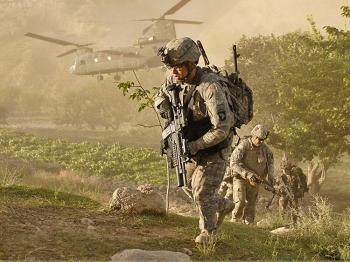

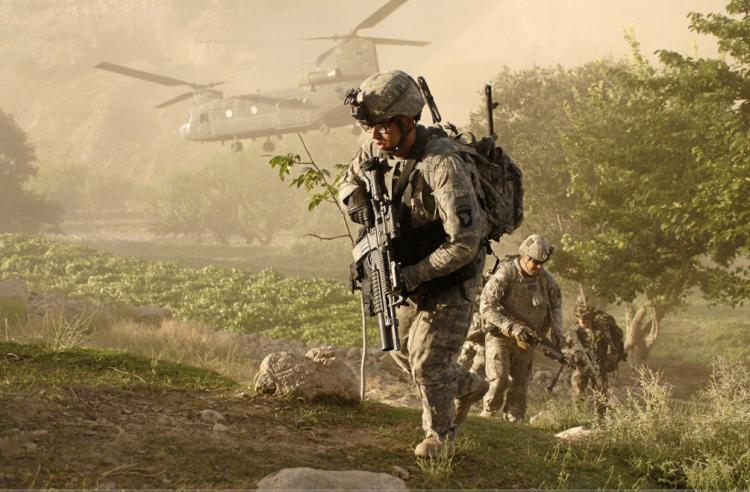
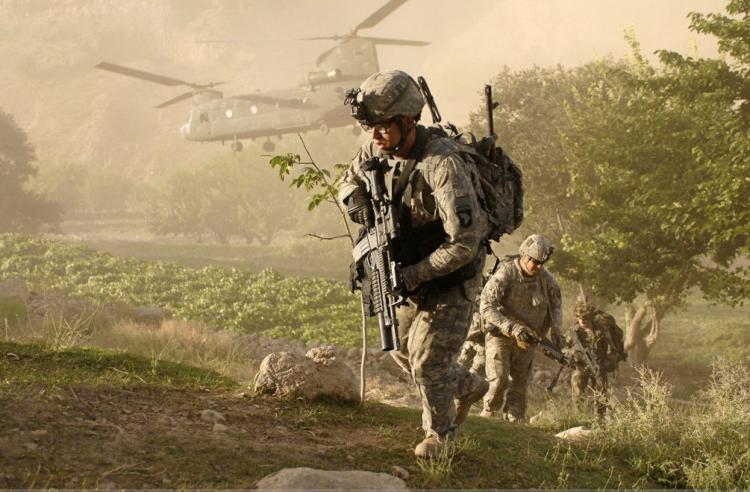
![[LIVE 4/26 at 10:30AM ET] New Push Started for Global Digital Currencies](/_next/image?url=https%3A%2F%2Fimg.theepochtimes.com%2Fassets%2Fuploads%2F2024%2F04%2F19%2Fid5633115-0426-1080x720.jpg&w=1200&q=75)
